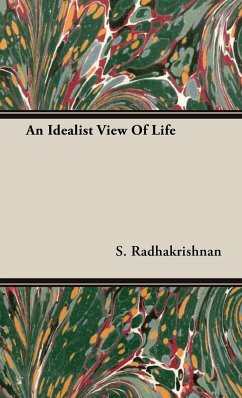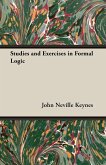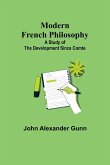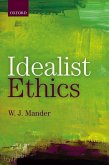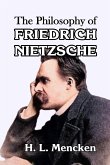An Idealist View of Life by S. Radhakrishnan. Originally published 1932. PREFACE: THIS volume contains the Hibbert Lectures given under the title An Idealist View of Life in the University of Manchester in December 1929 and in the University College, London, in January 1930, substantially as they were delivered, though I have added some passages which were not used in the actual delivery. I have also utilised parts of the material used in the Principal Miller Lectures of Madras University and the Third Krishnarajendra Silver Jubilee Lecture of Mysore University, which I had the honour to deliver in February 1931 and October 1930 respectively. I have retained the informal, even occasionally conversational style employed in addressing a general audience for the simple reason that the time necessary to recast the lectures into a more severe literary form is difficult to get for one who is actively engaged in teaching and latterly administrative work. The First Lecture attempts to set forth the modern challenge to religion, scientific and social. The Second out lines the lengths to which we are willing to go in order to escape from the impasse. The Third states the claims of the religious consciousness, while the Fourth argues that scientific certainty is not the only kind of certainty available to us. The Fifth points out that non-conceptual or intuitive appre hension is at work in all creative thought, whether in philosophy, art or morality, and we attain to a genuine apprehension of reality in religion. The Sixth and Seventh Lectures are devoted to a brief account of a scientific or empirical view of the universe and the concluding Lecture gives a view of ultimate reality, which, I believe, will safe guard to some extent the great spiritual interests of man kind. The book is not a defence of any specific religion but only a tentative attempt to discover truth and discuss its bearings on the general religious attitude. I am aware that the full implications of the problem are not followed out in detail. To the Hibbert Trustees I wish to express my very grateful appreciation of the honour they did me and the opportunity they gave me by their kind invitation to give the lectures. My friend, Professor J. H. Muirhead, very kindly read the proofs and I am greatly indebted to him. S. R. Contents include:PREFACE 9 CHAPTER I THE MODERN CHALLENGE TO RELIGION 13 - W aLiS-Idealism The Upanisads, Plato, Hegel The Chal lenge of Science Scientific Method Achievements of Science, Physics, Astronomy, Biology, Psychology, Behaviourism and Psychoanalysis, Sociology Comparative Religion. . and Higher Criticism Proofs forj heism Practical Inefficiency of Religion Religion ancTTolitics The Socialist Protest The General Unrest The Present Need. CHAPTER II SUBSTITUTES FOR RELIGION 52 Naturalistic Atheism Agnosticism Scepticism Humanism Religion and Humanism Pragmatism Modernism Authori tarianism Lack of the Spiritual Note. CHAPTER III RELIGIOUS EXPERIENCE AND ITS AFFIRMATIONS 84 WMUs, Philosophy Religion - The sjgJj of Religion-Personal Experience of God Its Character and Content Expe rience and the Variety of Expressions God and Self The World a Harmony Self-Recognition and the Way to It The Life of the Reborn Rebirtli Salvation Summary. CHAPTER IV INTELLECT AND INTUITION 127 The Eastern Emphasis on Creative Intuition The Western Emphasis on Critical Intelligence Different Ways of Knowing Bradley, Bergson and Croce on Conceptual Knowledge Intuitive Knowing Self-Know ledge - 6amliara, Descartes, Locke, Kant, Schopenhauer, Bergson - J ntuition and Imagina tion Intellect Hegel and Bergsof The Need for Intuition in Philosophy Pla o Aristotle Descartes Spinoza Leibni z Pascal Kant Hegel...
Hinweis: Dieser Artikel kann nur an eine deutsche Lieferadresse ausgeliefert werden.
Hinweis: Dieser Artikel kann nur an eine deutsche Lieferadresse ausgeliefert werden.

